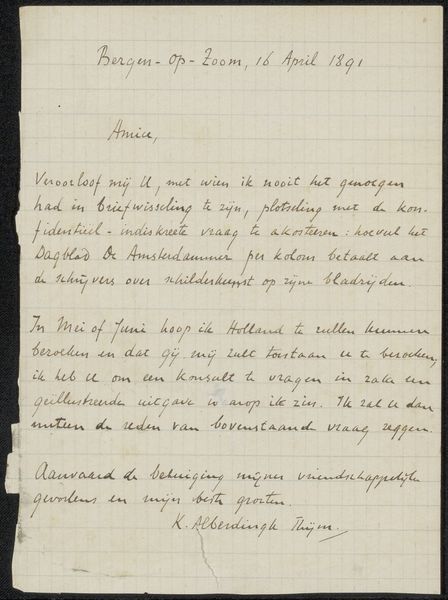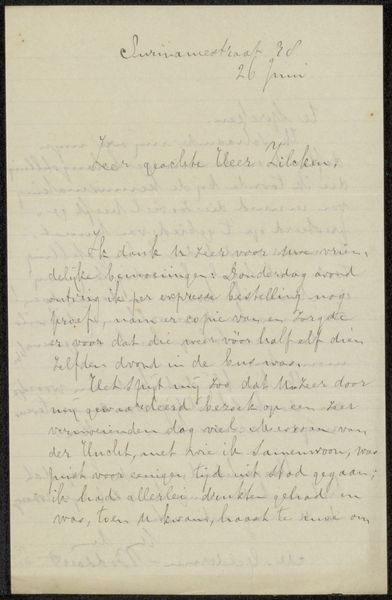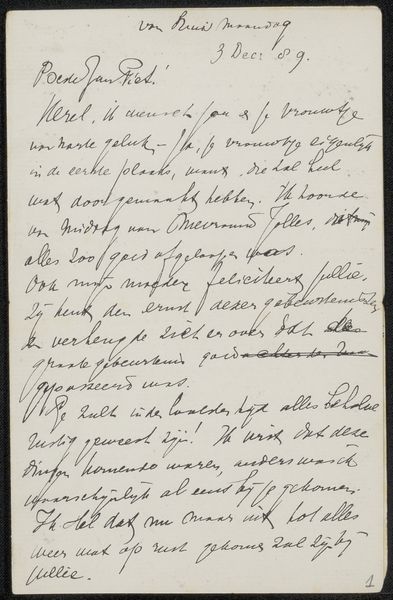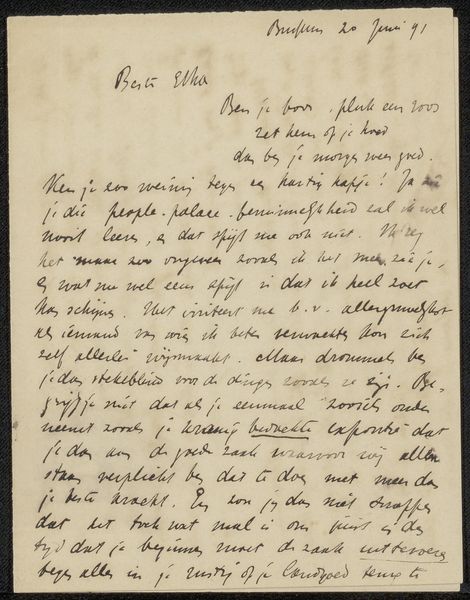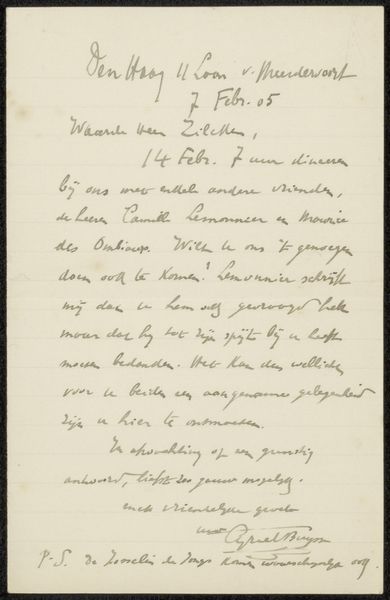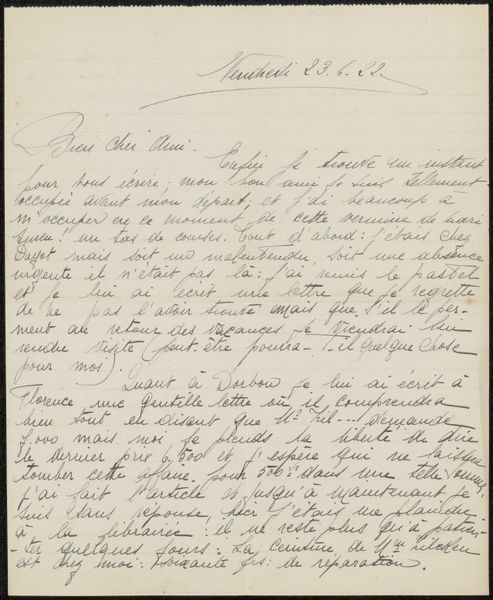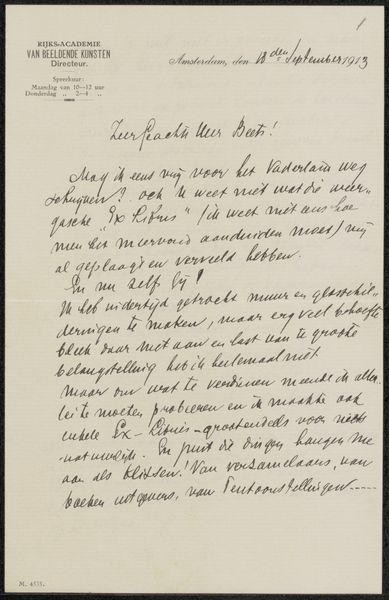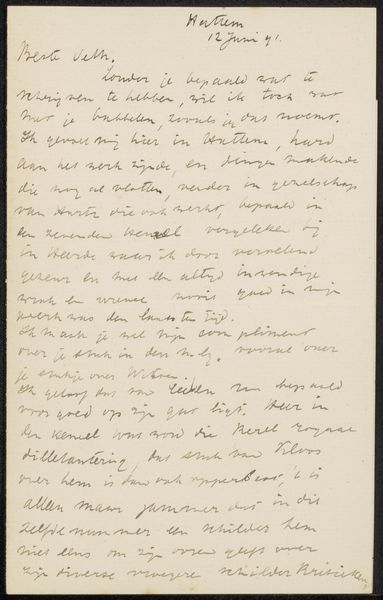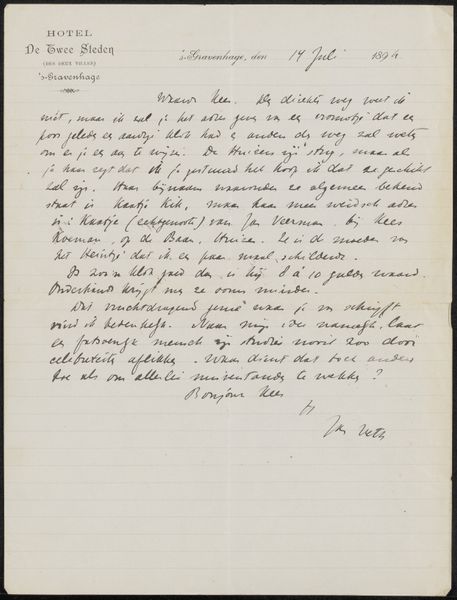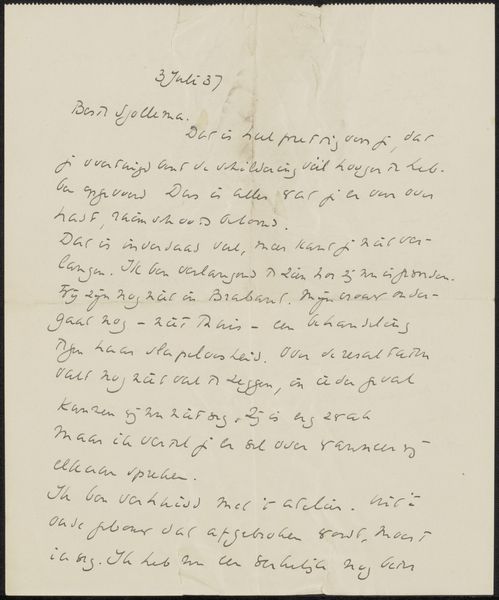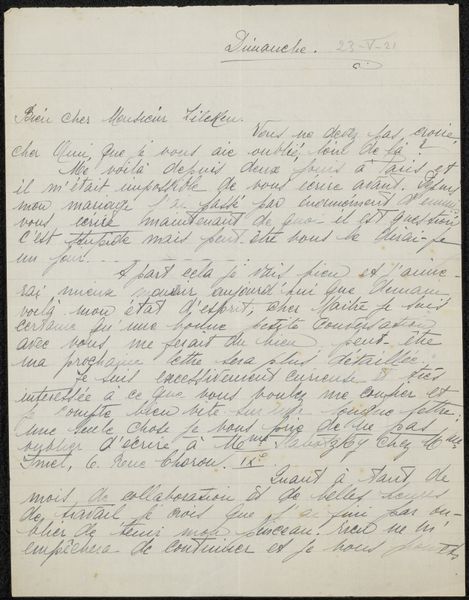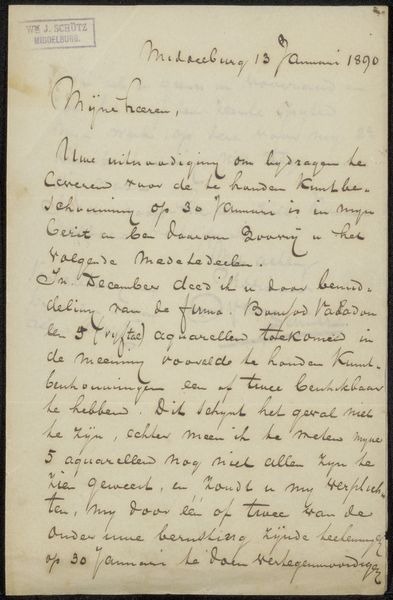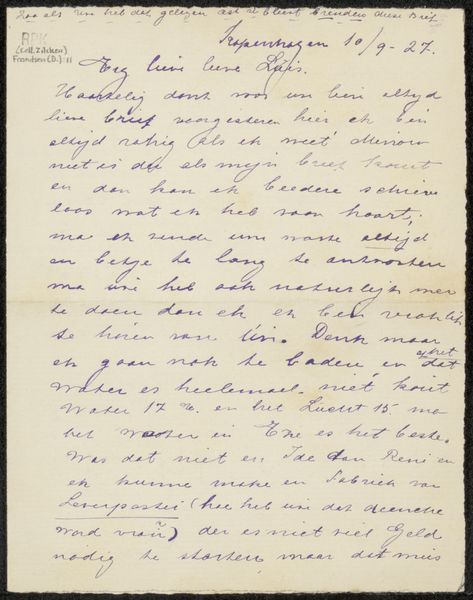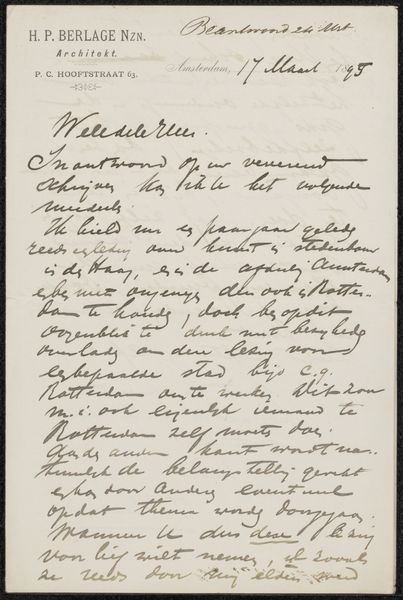
drawing, paper, ink, pen
#
drawing
#
comic strip sketch
#
hand-lettering
#
hand drawn type
#
hand lettering
#
paper
#
personal sketchbook
#
ink
#
hand-drawn typeface
#
ink colored
#
pen work
#
sketchbook drawing
#
pen
#
sketchbook art
#
calligraphy
Copyright: Rijks Museum: Open Domain
Curator: We're looking at "Brief aan Jan Veth" or "Letter to Jan Veth," believed to be penned sometime between 1891 and 1896 by Karel Johan Lodewijk Alberdingk Thijm. It’s an ink drawing on paper. Editor: Immediately, it strikes me as so intimate, even vulnerable. The handwriting is prominent, revealing the texture of the ink on paper. It almost feels like an act of pure transcription and the way the artist filled up almost the whole page shows intensity. Curator: Yes, the medium reflects its message: a personal correspondence, a physical artifact embodying the writer’s thoughts and emotions at a specific moment. It reflects an element of cultural continuity, observing Thijm communicating to Veth using traditional written correspondence. Editor: Right. Beyond the practical function of sending information, the art lies in the script itself. Look at the care in each loop and stroke, it is more than just practical— it's rhythmic, and expressive, you almost understand without speaking Dutch, based on pure movement. Curator: Consider also, the intended recipient, Jan Veth, was a prominent artist, critic, and writer himself. This letter probably holds symbolic weight, especially if the content regards intellectual exchanges. It highlights an old circle between the artist and intellectuals through their shared written medium, each carrying with them a different view and insight in terms of both creative and ideological terms. Editor: I find that the scale of the letter and use of ink emphasize an intentionality—a thoughtful, deliberate act in a world of instantaneous digital messaging. It invites a slower, more contemplative reading. I am struck by the beauty of its simplicity, both elegant and incredibly powerful in form and expression. Curator: Agreed, and I would add that in today's rapid communication age, this work is a precious artifact that helps maintain historical context, a link to an era defined by the tactility and sincerity of personal letters, and visual markers. Editor: I come away from this little piece with a renewed sense of admiration for what personal notes used to do in historical terms.
Comments
No comments
Be the first to comment and join the conversation on the ultimate creative platform.
